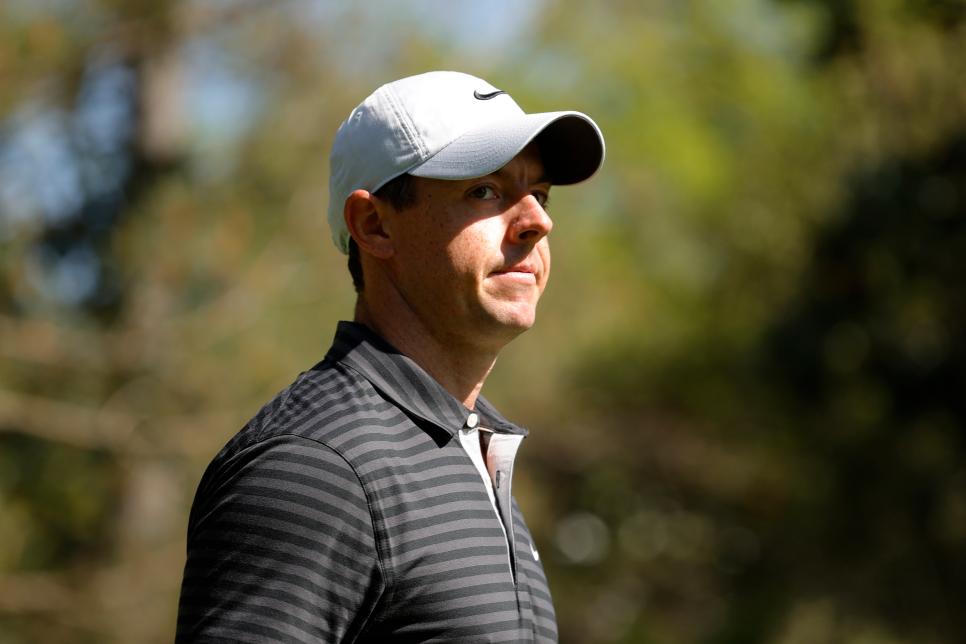Jared C. Tilton
By Daniel Rapaport
CHARLOTTE — Rory McIlroy knew the questions were coming. We last saw him four weeks ago at the Masters, where he looked out of sorts and fired up the private jet from Augusta on Friday afternoon. In the time between then and this week’s Wells Fargo Championship, two major developments have surfaced in the world of golf—the Player Impact Program and the re-emergence of the Premier Golf League. And he’s now the chairman of the PGA Tour’s Player Advisory Council, and the chairman of the Player Advisory Council simply has to speak on such matters. It’s part of the gig.
On the Player Impact Program, the PGA Tour’s newly announced $40 million yearly fund that will be distributed to the 10 players who bring the most positive publicity to the sport, McIlroy threw his support behind commissioner Jay Monahan.
“I think that Justin Rose made a good point, he said a rising tide lifts all ships. I think with the top players being more engaged in the tour and the goings on, it will help the rest of the membership. I think that’s how I feel about it.”
No surprise there. McIlroy was the first to toss cold water on the PGL idea last February, when he said he didn’t like the source of the money and valued his ability to make his own schedule. But he also said the offer exposed shortcomings in the tour’s payment model: Mainly that the superstars weren’t properly compensated for the eyeballs they attract. It’s no secret that the PIP was enacted with that goal in mind, to reward guys like McIlroy.
McIlroy, meanwhile, once again rejected the notion of the PGL a day after reports surfaced that the Saudi Arabian-backed venture had sent offers up to $30 million in hopes of luring Dustin Johnson, Phil Mickelson, Brooks Koepka and Justin Rose to join the team-based league.
“Look, they first contacted me back in 2014,” the four-time major winner said, “so this is seven years down the line, and nothing has really changed.
“Maybe the source of the money’s changed or the people that are in charge have changed, but nothing has happened. No sponsorship deals, no media deals, no players have signed up, no manufacturers have signed up. There’s been so many iterations at this point.
“I think people … you go back to what happened last week in Europe with the European Super League in football. People can see it for what it is, which is a money grab. Which is fine if that’s what you’re playing golf for is to make as much money as possible. Totally fine, then go and do that if that’s what makes you happy. But I think the top players in the game, I’m just speaking my own personal beliefs, like I’m playing this game to try to cement my place in history and my legacy and to win major championships and to win the biggest tournaments in the world. That’s why I’m playing this game.”
McIlroy has recently brought on swing instructor Pete Cowen in hopes of getting his game back to his expectations. He arrives this week to Quail Hollow, site of his first PGA Tour victory in 2010, ranked No. 15 in the world—the lowest he’s been since November 2009 when he was 20 years old. Now 32 after his birthday on Monday, he has missed the cut in each of his past two stroke-play starts: at the Masters and the Players Championship before that.
“I feel better about my game than I did flying home from Augusta on Friday night, put it that way,” he said. “I’ve worked a little bit on it, sort of just tried to understand what I do well. I guess trying to sort of focus on my strengths. I think I’ve neglected my strengths a little bit the past couple of months, and focusing more on those and focusing on what makes me a good golfer.”









